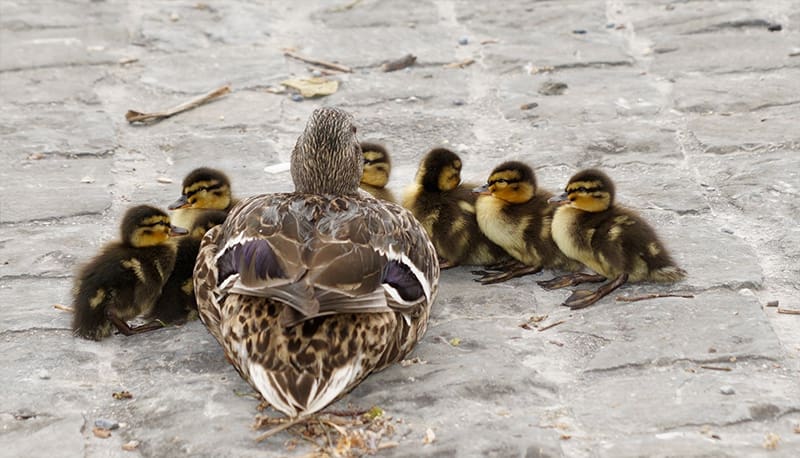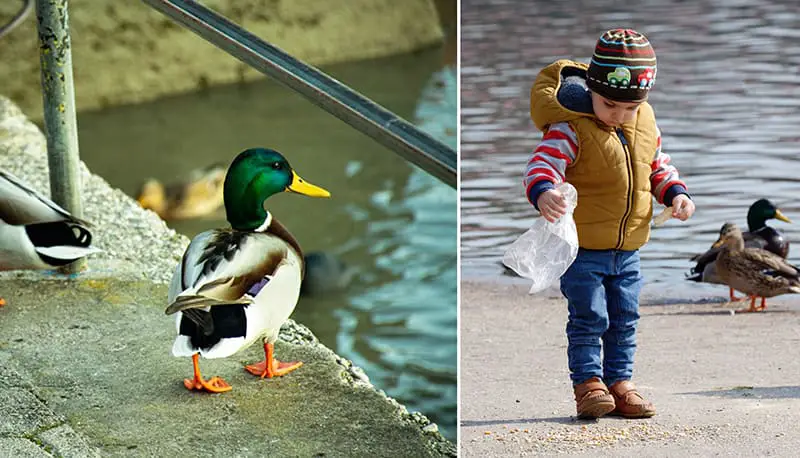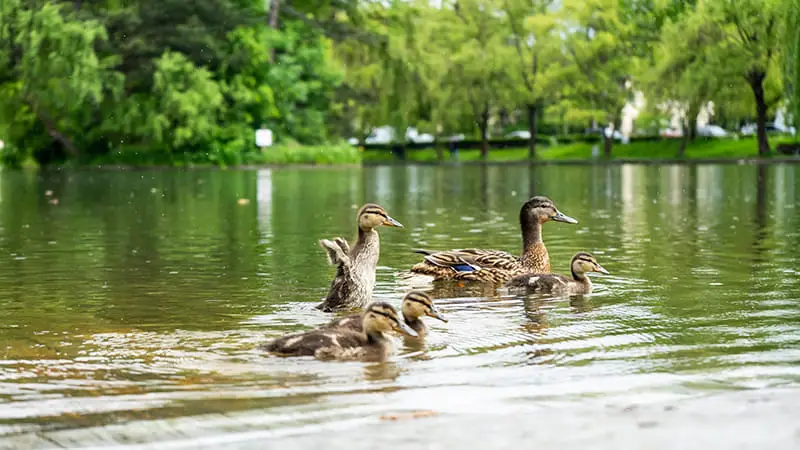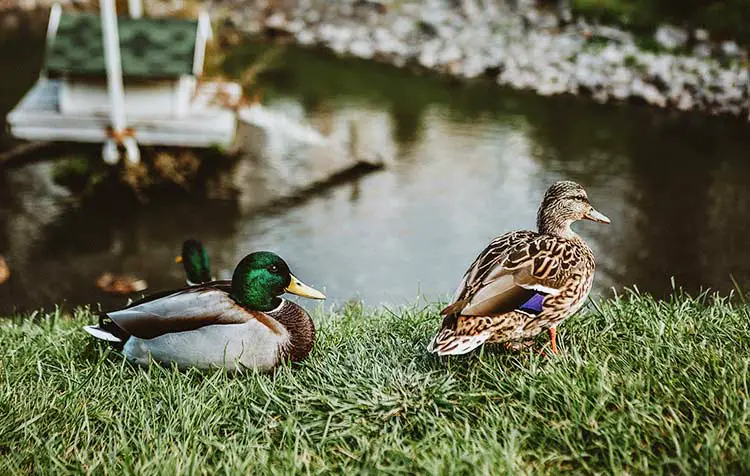dsadsa Prohibition signs are often posted - but not always. And so many people feed the ducks anyway. Most of us, of course, want to do something good for the animals. But unfortunately this is a misunderstood form of the Animal welfare in everyday life.
Tip: I have dealt with this in a separate article, to what extent animals feel emotions and pain. Maybe this is also still interesting for you.
Why you can't feed ducks with bread

To prevent as many people as possible from unsuspectingly feeding bread to ducks in the future, I'd like to list the reasons that back it up for you here. You'll quickly see that there's more to it than just "it's unhealthy for ducks".
Sufficient feed available
Ducks usually eat Spawn, small fish, frogs, larvae or Worms. The food supply is therefore abundant in and around Germany's lakes and rivers.
But the thrown down bread is of course also gladly taken, because it is so nice comfortable. But bread only makes ducks sluggish and fat.
Bread is unhealthy for ducks
As you may have noticed, bread is not a suitable food for birds, because it simply contains too much salt and swells in the stomach or even already in the throat. This threatens the animals with death by suffocation.
Ducks lose their shyness in front of people
When ducks have learned that they do not have to be afraid of people, and are even fed bread every day, they naturally lose their shyness. The can become a danger for the animalswhen they get too close to a dog or a car, for example.
Oxygen consumption in water
Bread and increased duck droppings reduce the oxygen content of the water. The decreasing water quality takes Influence on the entire ecosystem and provokes, for example, increasing algae formation.
Feeding ducks is an administrative offense
Feeding ducks is simply prohibited and can be expensive. The respective municipality can issue a Fine of up to 1,000 euros impose
Incidentally, the food also attracts other animals such as rats and mice, which then cost the city dearly in pest control.
Why do we still feed ducks?

Because we are simply good people and, above all, our Allow children to have a little fun want. At the same time, many people see it as an exemplary measure to give children a friendly contact with animals to teach. Most of us feed the ducks because they used to do it with their parents. But today we know that feeding ducks is dangerous.
We can teach children to interact with animals differently
On the one hand, everyone can lobby the respective city to put up "Feeding ducks prohibited" signs at the appropriate places. On the other hand, children can also be introduced to nature in a more animal-friendly way. For example with a Excursion with the Nature and Biodiversity Conservation Union (NABU) or other animal welfare organizations. Even simply observing animals a few feet away can help children understand a sensible approach to ducks.
If you observe people feeding ducks (with bread) you should kindly point outthat it is unhealthy for the animals.
Feed waterfowl properly
If you are determined not to forego feeding the ducks, you should special waterfowl feed from the pet store to the edge of the river or a lake. This is healthier for the animals and kinder to the water quality. Oatmeal and small pieces of fruit are also alternatively better for ducks than bread.₁
Notice: We don't need to talk about those who throw bread to ducks even though they know it is forbidden. That is, of course, conscious cruelty to animals.
Do not feed ducks - educate other people

The ducks and their chicks lose shyness, the bread swells in the stomach us life-threatening, it attracts rats and reduces water quality in rivers and lakes. In addition, feeding ducks is not only dangerous, but also prohibited throughout Germany. Good reasons not to carelessly give ducks bread and be a - mostly unintentional - wrong example to your children.
Do you have questions or your own experiences with feeding ducks? Then just write me a comment under this post. You are also welcome to share the link to the enlightening article with others.
Stay pet friendly,

PS.: In the animal welfare blog you will learn so much more about how you can do not only ducks, but also many other animals a big favor every day. For example, read the article about the Factory farming and its consequences.
References:
₁ Landesbund für Vogelschutz in Bayern (LBV) e. V.: Darf oder soll man Enten eigentlich füttern?, available at https://www.lbv.de/ratgeber/lebensraum-garten/voegel-fuettern/soll-man-enten-fuettern. [26.03.2020].






Thank you ! This is really an important contribution ! I so often observe that whole rolls of bread floating in the water !
We also did that 30 years ago as children to feed bread , but for children is also enough to observe animals and with wild animals it is also important if the children learn to keep a respectful distance, I think.
Comments are closed.